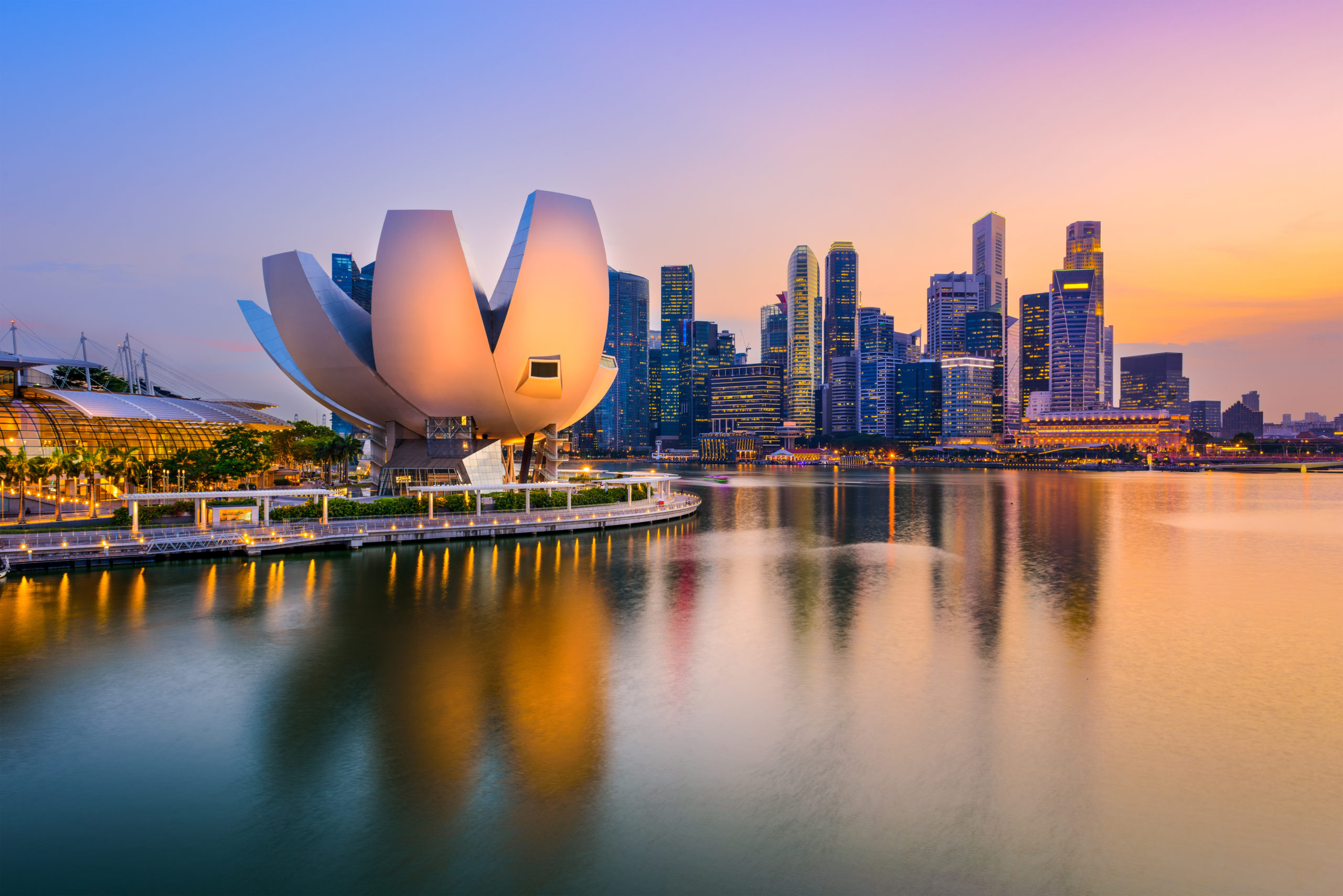Connect with us
Published
1 year agoon

It’s easy to forget that the United States just recently recategorized hemp and removed it as a Schedule I controlled substance. The 2018 Farm Bill has since eased previous restrictions, paving the way for a wholly new industry in the country. However, many countries around the world have yet to make a similar leap.
One such country is Singapore which, like most other Asian countries, has banned cannabis. The country’s Central Narcotics Bureau (CNB) doesn’t make exemptions for hemp products and has reportedly prompted the removal of a snack containing hemp from vending machines, TheGrowthOp reports.
The product in question is the Piranha Power Pack, a snack mix containing mixed nuts, probiotics and—the kicker—hemp seed flour. The CNB directed the company to remove the snack, which only recently became available in Singapore, from vending machines and additionally recommended anyone who purchased the snack to immediately dispose of it.
Hemp seed flour falls toward the middle of the snack’s ingredients list, and most folks familiar with hemp already understand that eating a snack with this ingredient—or ingesting hemp products in general—will not lead to a psychoactive high. Rather, hemp flour is plentiful in healthy fats, magnesium, protein, vitamin E, potassium, calcium, iron and zinc, among other essential vitamins and minerals.
Given the health food adjacent brand focus of Piranha, which creates “unique snack foods using natural ingredients” and touts its gluten-free, probiotic enhanced and vegan snacks, the hemp seed flour seems to be present as another enriching ingredient, rather than a cannabis-focused gimmick to pulled in consumers or an attempt to get consumers high.
The CNB, however, was clear about its stance on the inclusion of the ingredient in a recent Facebook post.
“Did you know that cannabis sativa is the botanical name for the hemp plant? You read that right: hemp is cannabis. This means that all hemp proteins, fibre, seeds, oils, etc. that are derived from the hemp plant are derived from the cannabis sativa plant,” the post reads.
It’s true that psychoactive, THC-containing cannabis and hemp come from the same plant. However, the product that is sold and regulated in dispensaries is categorically different; in the U.S., hemp is distinguished by its trace amounts of THC, less than 0.3% specifically.
But it’s hard to compare Singapore with evolving Western policy, given that both medicinal and recreational cannabis is illegal in Singapore. According to Cannigma, the country has a zero tolerance approach to drug offenses, and any use of cannabis could result in severe punishment.
The country has allowed the sale and use of pharmaceutical cannabinoid products, but only under strict guidelines. As of June 2021, just two people in the country are granted permission to use these cannabinoid medicines.
In this regard, Singapore is not unique compared to its neighbors. Medicinal and recreational cannabis is against the law in all Asian countries, with the exception of Israel, South Korea and Thailand, which all have legal medical programs. Thailand also continues to make headlines as the country presses forward following its recent decriminalization of recreational cannabis. Many have theorized this move could pave the way for future reform throughout the continent.
Singapore’s drug laws are some of the toughest in the world, with penalties for small amounts of drugs reaching up to 10 years in prison, fines of up to $20,000 or both. The CBN also states that cannabis and its derivatives are Class A controlled drugs, citing that the “importation, exportation, possession, sale and consumption of controlled drugs or products containing controlled drugs, even in trace amounts, is an offence under the MDA.”
The CBN also says “any product derived from the cannabis sativa plant or its seeds can contain controlled drugs” like THC, citing its potential to cause a psychoactive high. However, even the most inexperienced cannabis users are extremely unlikely to feel high from ingesting hemp seed oil or any CBD product with less than 0.3% THC; though it is true that CBD can promote a sense of calm or wellbeing in users.
Following the CBN’s order to remove the snacks from vending machines, the agency also reminded importers, retailers and members of the public that any product with hemp derivatives should not be imported, supplied or put on sale. The agency said it had engaged with Piranha and that “investigations by CNB are ongoing.”


Clinical Trial To Assess LSD Microdosing For PMS


Survey: High-THC Flower Yields Few Serious Side Effects in Patients


Connecticut House Approve Bill Regulating Hemp Products


Hemp Clothing Market to Hit $23B by 2031, Report Predicts


Despite City Efforts, Hemp Shops Posing as Dispensaries Prevail in Las Vegas


Cannabis Community, Investors React to DEA Decision To Reschedule
